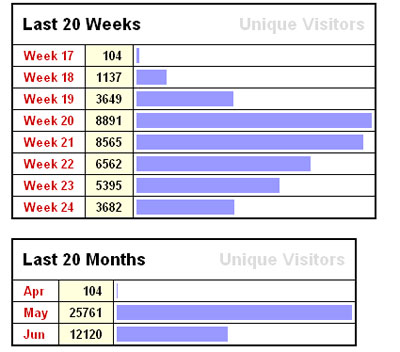On the Blogger Registration Act
Hou, The Students' Notebook
Mr Leong writes about a hypothetical situation whereby all bloggers are required to register after an act of violence was induced by blogs, and in this case controversy will be akin to the enactment of the PATRIOT ACT after the September 11 attacks. (which is well covered elsewhere, so I shall not repeat.)
Now, instead of stopping here we consider a step further - suppose the government agrees with Mr de Sourza, and actually passes the Blogger Registration Act now. What are the possible consquences, on top of the issue of privacy?
The negative implications from any invoking of a Blogger Registration Act in the forseeable future far outweights any benefits it brings (if there is any). Furthermore, most bloggers aren't anonymous. The Singapore blogosphere has the ability to be self-regulating, and to upset its ecology by introducing regulation is not only a bad idea to the blogospehere, but harmful to the country as well.
Part One : Not true to say bloggers hide under cloak of anonymity to rant against govt
Mr Leong writes about a hypothetical situation whereby all bloggers are required to register after an act of violence was induced by blogs, and in this case controversy will be akin to the enactment of the PATRIOT ACT after the September 11 attacks. (which is well covered elsewhere, so I shall not repeat.)
Now, instead of stopping here we consider a step further - suppose the government agrees with Mr de Sourza, and actually passes the Blogger Registration Act now. What are the possible consquences, on top of the issue of privacy?
- Instructions Creep will occur. Most of us are familiar that the workings of the government will know that it is very likely to ask for exhaustive information before granting licenses to blog. This is assuming the government automatically grants them if they believe the information is correct and accurate, and that grounds of credentials are not considered. If they decide to include and warn you of its associated regulations, many will be too scared to even contemplate signing up for a blog.
- There will be a loss of opinons. There are few people who blog anonymously for a very good reason, and that is those who are working within the government sector. They will face the fear of reprecussions and subject to harassment if they criticise the government's policies. Just as The Straits Times journalists have mentioned, civil servants and government employees are likely to turn into Yesmen in exchange for job security. Dissenting but useful feedback for the government to consider will simply dry up.
- Singapore's "Nanny State" reputation will embolden. It will join the ranks of China and Cambodia in terms of Internet censorship and dismal human rights. This form of social control will be noted as a form of social control, similiar to the Chewing Gum Ban in the 90s. One may also compare the government to control blogs in Singapore similiar to Nicolae Ceaușescu, who regulated the ownership and usage of typewriters (to control who was writing what) and the penalty of failure to register was death.
The negative implications from any invoking of a Blogger Registration Act in the forseeable future far outweights any benefits it brings (if there is any). Furthermore, most bloggers aren't anonymous. The Singapore blogosphere has the ability to be self-regulating, and to upset its ecology by introducing regulation is not only a bad idea to the blogospehere, but harmful to the country as well.
Part One : Not true to say bloggers hide under cloak of anonymity to rant against govt



 From the creators of The Students' Sketchpad et alii,
bringing you reports and commentary on educational
issues that sink deep into students' hearts and minds.
From the creators of The Students' Sketchpad et alii,
bringing you reports and commentary on educational
issues that sink deep into students' hearts and minds.